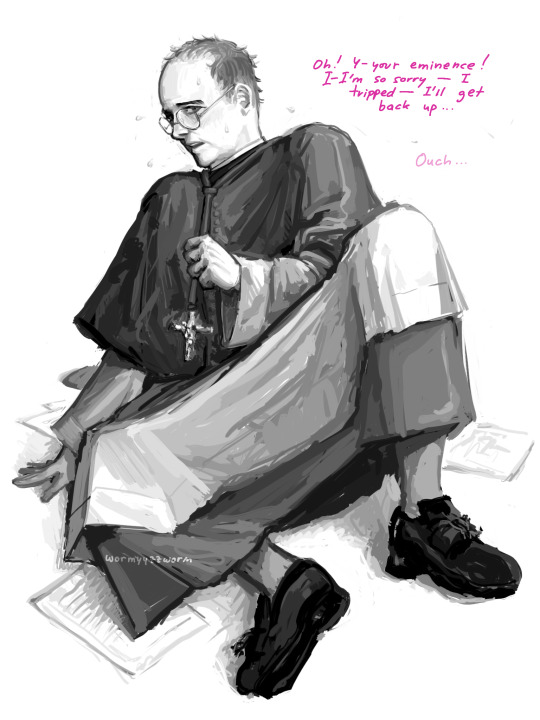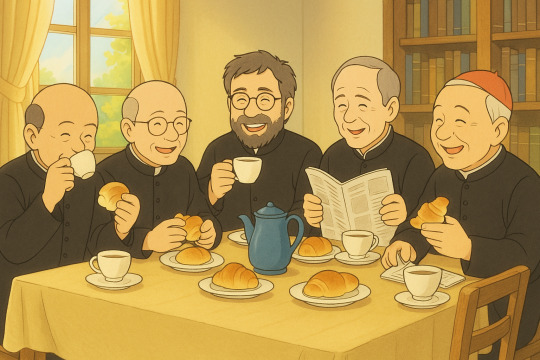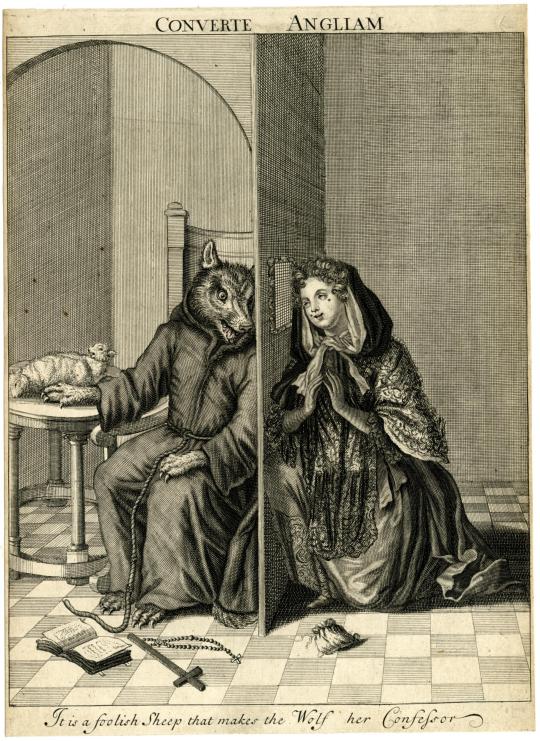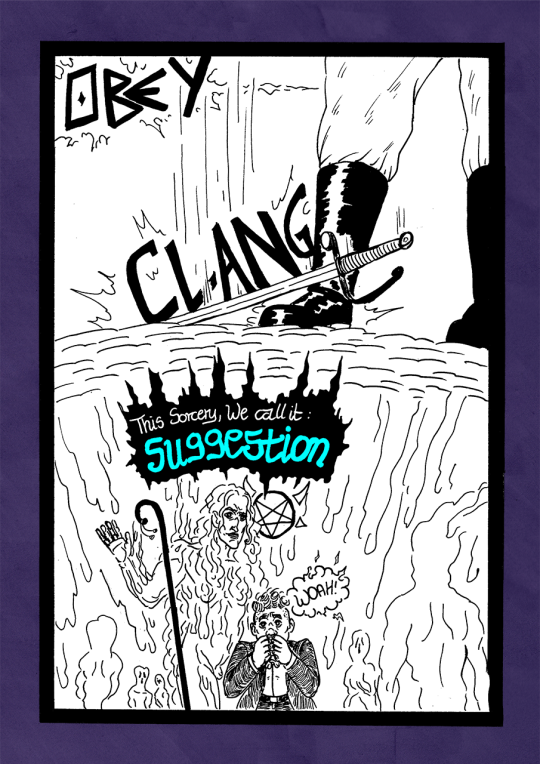#my clumsy monsignor...
Explore tagged Tumblr posts
Text
looking for monsignores who are cute and clumsy near me...

lolololololol


#conclave 2024#conclave fanart#conclave movie#ray o'malley#raymond o'malley#I LOVE O'MALLEY#i will gnaw on him#my clumsy monsignor...#i'm eating him#i wanted to add dog ears but i got extremely lazy#its 1 30 am#lol
87 notes
·
View notes
Text
On The Way Home
It’s time to go home. I’m on the shuttle now, watching the traffic crawl by—thick, slow, heavy. The kind of traffic that makes time feel like soup, and not the good kind. I need something to preoccupy myself other than music, because if I rely on that alone, I’ll end up staring blankly out the window and wondering what year it is. God knows what time I’ll actually get home tonight.
It’s raining, too.
I should feel sad. Maybe I am, a little. Not in a heavy way—more like in the “my shoes are wet and I’m silently panicking” kind of way. They’re my favorite suede deck shoes, and the thought of them getting stained hurts more than it probably should. But here I am, hoping for dry miracles in Batangas' monsoon season.
I’m rambling, I know. These are just empty thoughts floating around in my head. Still, I wanted to steal this little moment to write—think of it as my “on-the-way-home” entry. One more to follow before bed, I think. I already have it mapped out in my head, but I’m saving that one for later. For now, this will do.
JIRO is doing great, by the way. That’s my AI—my little clumsy digital assistant who makes me laugh with how he interprets my thoughts into pictures. Sometimes he gets it so wrong it’s endearing, and sometimes… he surprises me. My hope is that with time, training, and a little bit of patience, he’ll get better. That’s the beauty of it, isn’t it? Of creation. Of making something that tries to understand you. Right now, JIRO’s just drawing how he sees it. But the goal is to one day have him see it how I mean it.
We’re drifting off-topic.
But then again, this is a diary. I’m allowed to ramble here.
If you’re reading—thank you. Thank you for your patience. I haven’t written like this in a long time. I stopped after college, really. Life happened. Work happened. Almost five years into being a corporate girly, I guess I just needed something to keep me grounded. Something that wasn’t deadlines and KPIs.
And then—Tumblr again. Like an old friend who doesn’t ask why you left.
I don’t have many pleasures in this mortal world. Just a few: photography, food, music, and writing. That’s it. I code for a living, but that’s not the same. Coding is my bread of life, sure—but it’s not the air I breathe. It feeds me, yes. But it doesn’t nourish me.
Writing, though? Like music and photographs? It’s oxygen. It’s soul food.
So yeah.
Onward with the story we go.
Orange Peel Theory: "Where He Sat"
The refectory was already half full when Goffredo entered.
The soft clatter of porcelain and murmured Latin prayers filled the air like incense. Cardinals stirred tea. Monsignors read their briefings over bread. The morning sun cut long lines through the stained-glass windows, bathing the hall in diluted gold.
Goffredo paused just inside the door.
He wasn’t late. He wasn’t early. But this time—for the first time in years—he had nowhere else to be.
Luca, ever diligent, gestured toward his usual seat near the window—far enough from the others to keep conversation optional. Predictable. Safe.
But Goffredo didn’t move toward it.
Instead, he walked the length of the hall—down the center aisle, past Thomas who raised his brow just slightly, past Giulio who nudged Raymond beneath the table.
And then he stopped.
Beside Aldo.
Aldo, already seated, was halfway through his tea. He didn’t look up immediately. He didn’t need to. The moment held itself like an unspoken breath.
Goffredo pulled out the chair.
Sat down.
Said nothing.
Aldo finally glanced sideways, only for a second. “They served the orecchiette again.”
“I noticed.”
“They made it with pecorino, not parmigiano.”
Goffredo allowed the faintest smirk. “The sisters must be losing their touch.”
Aldo tilted his head, deadpan. “Or maybe they were asked to change it.”
Goffredo cut a piece of bread. “How presumptuous of them.”
“I’ve been told I have influence.”
A flicker of a laugh—not full, not loud, but real.
And in that moment, everyone in the room saw it.
Not because they spoke. Not because they touched.
But because Goffredo Tedesco did not sit by the window.
And Aldo Bellini did not look surprised.
Vincent, seated at the far end of the room, watched them for a moment longer than necessary.
He didn’t say a word.
Just turned a page in his briefing and smiled—barely.


#goffredo tedesco#aldo bellini#aldo x goffredo#bellesco#soft bellesco#goffredo bellini x aldo bellini#conclave#alternate universe#thomas lawrence#giulio sabbadin#raymond o'malley#aldo bellini x goffredo tedesco#software engineer#software developer#AI training#i code for a living#will work for food#AI creator#i create AI#passion hobby#orange peel theory
6 notes
·
View notes
Text
Madame Putiphar Readalong. Book Two, Chapter Twelve:
“Where is my lord? where is my Romeo?” signals the beginning of Book Two.
(For any new followers wanting to read this novel in English you can do it now, here! )

this british anti-catholic, pro anglican illustration is not the perfect fit for this chapter,,, but i like it and it has a wolf.
As the lovers separate and move away from the home-as-prison, we start a new section of the novel. We also say goodbye to Ireland for the rest of the novel, and dive into the French fraction of the book.
It starts with Patrick struggling with not wanting to leave Deborah alone, and trying to reconcile his situation with pre-existent ideas of honor/courage. He knows he has to leave, and that staying next to her is really pointless (given that he’d not be allowed to sit by her side and take care of her. plus he could be killed, and dying if she lived on would be pointless, thinks Patrick) but he still feels guilty for running from the killer’s blade.
I wouldn’t have thought much of it with other author, but given how important canines are for Borel, I think it’s worth mentioning that Patrick gets compared to a dog (howling like a dog outside the house where its master agonizes) and a wolf (once he takes the choice to leave Cockermouth Castle and runs bravely into an unknown fate)
Sad, full of doubt and regret, Patrick leaves Ireland by ship. As the shores of his motherland grow blurry, Patrick weeps not only for Debby, but for his only mother, his country.
Once in French soil we meet through Patrick the Irishmen who have been forced to emigrate for years since the English invasion, forced to fight for another country.
Borel praises the relentless men whose “valor and genius proclaims the history of the continent and of the new world” (can’t help but think of Guillermo -William- Brown, 1st admiral of the incipient Argentine navy and fighter against empires in the Latin American Independence wars)
Patrick is taken under the wing of one of these Irish immigrants: -a scene that must have caught Janin’s attention in a powerful way since he felt the need to pastiche it in a clumsy but detailed way in his review- Monsignor Richard-Arthur Dillon, Archbishop of Narbonne, a historical figure and a noted libertine.
What follows is a picaresque scene (and in line with Borel writing not only a philosophical/social-critique/anti-authoritarian/with-elements-of-fairytale-logic/novel, but a multigenre pastiche of European literature as a whole) we get in this scene the clichés of the lover hiding behind the curtain, and the lecherous priest/in this case "sexually active priest " would be more fitting/, a figure Borel returns to in the Caverne d'Arcueil.
Social critique is brandished here in an almost gentle way? (imagine a Dillon type in Sade's hands) This is perhaps partially because the narrator assumes Patrick’s pov: Dillon recieves him merely wearing his bath robe, and invites him to his bedroom (he is not really even trying to hide his un-chaste activities... or is he inviting Patrick to join him and his lover?) Nevertheless the narrator claims one could have thought he had been praying, were it not for the scattered pieces of women’s clothes Patrick’s eyes keep falling at, and the sound of breathing coming from behind the bed’s curtains. You can tell from the playful tone Borel is just having fun building up the subtext, claiming that Dillon should have been the Bishop of the Opera House, that he was in a particularly great mood that morning, deeply predisposed to tenderness... (adressing the readers directly as well, plural vous and all, building up the complicity)
But Patrick rejects the implications because he can’t believe a priest would not be chaste. (his hardcore naivité is very ‘Pure and Innocent Protagonist in a French Philosophical Novel of the 18th Century’) The other unusual thing-to his experience- and second element of anticlericalism Patrick notices, is the opulence. The man is loaded, lives like a prince, unlike the other catholic priests he has encountered in Ireland.
Patrick continues to tell his story and Dillon’s hidden lover cannot hold back any longer, springs from behind the alcove’s courtains, and is pleasantly surprised that the touching narration was issued by a man of strikingly Ossianic beauty! (the song of ossian: a literary hoax, an original work written in the 1700’s whose author claimed to be a translation of a manuscrip wrtitten by a Scottish Bard. Fun fact: Napoleon adored the Ossianic saga and much of his imagery in paintings of the 1st stage of the empire is based on an Ossianic aesthetic. The connection here is not bonapartist, but celt. My edition claims the originality of the work was still being debated in the 19th century)
She enthusiastically declares her loyalty and undying friendship to him, Dillon swears to become his protector... Kissing Dillon’s forehead, his mistress declares Patrick has become her new favorite (echoes of François 1er’s wife having the king “gift” Benvenuto Cellini to her as a lover) Patrick shyly calls himself her slave... They part, but Dillon urges Patrick to return often, his door always open for him, etc (we just witnessed a sex pact, the difference is that Patrick seems too naif to understand what might be expected in exchange of Dillon’s protection? Or is he.)
Patrick bows and kisses the bishop’s emerald, but wholeheartedly asks for his benediction.
Next we get a frankly balzacian (not implying Borel is spoofing his style, it’s just reminiscent of it to me) paragraph explaining the workings of a sinner’s soul, how their volubility makes them emminently generous because they follow boundlessly every whim of their souls, both the good and the bad, Marie Magdalene allusions, the works.
The quid of the matter here, is that Patrick’s beauty and aristocratic descent assured him protection, leading to social ascent. “Parvenir! Parvenir a tout prix”, Patrick says NOT since he is Not in a Balzac novel.
And this is where the chapter ends: we meet two characters the reader would be wise to keep an eye on: Fitz-Harris’ Patricks long estranged childhood friend, and Colonel Marquis de Villepastour...
10 notes
·
View notes
Text




Souls Foreclosed, Chapter VIII:
POMP AND CIRCUMSTANCE - Scene 2: Entourage (4)
(OCT 13 - 2021)
Transcription:
OH - O'Hardy MS - Monsignore C1, C2 - Two Police Constables TT - Tabea Turnpenny JS - Joey Styx L - Lucifer
(019-1) OH: "My face... MY BEAUTIFUL FACE!"
(019-2) MS: "... ..."
(019-3) [SFX: Tap Tap]
(019-4) TT: "LET'S BE REASONABLE"
(019-5) TT: "OFFICER, there is absolutely nothing no need for any FURTHER VIOLENCE"
(019-6) TT: "My companion is a bit brash when my safety is concerned... he isn't - used to our CIVILISED ways."
(019-7) C1: "Can't he speak FOR HIMSELF?"
(019-8) TT: Well... you see...
(020-1)JS: Huh? What's THIS now? It's UNLIKE ANY SORCERY I've seen before!
(020-2) L: Don't worry.
(020-3) TT: OBEY - LISTEN - OBEY - LISTEN - OBEY - LISTEN
(020-4) TT: "You beheld his face, a normal living visage and trusted my every word."
(020-5) L: It's nothing PAINFUL
(020-6) TT: "He took a vow of SILENCE for his GOD and you admire that. In fact you WILL APOLOGISE TO HIM. You also put down YOUR SWORD."
(021-1) TT: OBEY
(021-2) [SFX: CLANG]
(021-3) L: This Sorcery, We call it: SUGGESTION
(021-4) JS: Woah!
(022-1) TT: "My, my - Officer! So CLUMSY..."
(022-2) TT: "Be a DEAR, Monsignore."
(022-3) TT: "Pick up that SABRE"
17 notes
·
View notes
Text
"Sister Act" show #677
The thing with Sister Act, as a musical, is that even when strong performances, choreography, and direction are present, they only expose the weaknesses of the book and lyrics. Berkeley Playhouse’s jovial production showcased several stellar performances, but never quite reached an overarching level of musical legitimacy needed to fully entertain an audience. Lexie Lazear’s direction gave room for the actors to capitalize on the few strengths the script and score have to offer, and astutely skated over the more groan-worthy aspects. In all, this Sister Act was a hallelujah of a production in spite of the flawed material.
Elizabeth Jones delivered a fine performance as lead sister, Deloris Van Cartier. A very capable singer, Miss Jones did a lovely job in “Take Me to Heaven,” “Fabulous Baby,” and lamented a wonderful “Sister Act” in Act Two. However, where Miss Jones fell short was in her absence of pathos and lack of charisma, which was replaced by, what seemed like, impulsive line delivery. The role is burdened with a string of solo turns and jokes, the latter falling short as she set up the joke and “told” the punch line before delivering it. However, it was in Miss Jones’ excellent leadership of the Act One showstopper, “Raise Your Voice” where all the elements of her talents came together in fabulous fashion. Heather Orth donned the Mother Superior habit, and did so with comedic panache and stunningly impressive vocal chops. “Here Within These Walls” and “I Haven’t Got A Prayer” are heartfelt laments with several clever turns of phrase, all of which were delivered with expert timing and inflection by Miss Orth. She consistently found the right balance of honoring the hymn-like soliloquies with the amount of sarcastic undertone the role exudes towards Deloris.
On the male side of the church, Dave J. Abrams’ performances as Eddie Souther, the nervous cop charged with Deloris’ well-being, was nothing short of amazing. Being labeled “Sweaty Eddie,” based on his dramatic sweatiness when nervous, the character has a chance to show the moxie and swagger buried within the uniform and deodorant; that moment being the Act One breakout number, “I Could Be That Guy.” Preceded by a charming turn in the scene work opposite Miss Jones, Mr. Abrams flashed what was certainly the absolute best vocal performance in the show- dancing, riffing, and simply dominating the one true song he had to shine in. Mr. Abrams delivered Eddie’s clumsy physical comedy formidably, pairing well with the earnest love he showed towards Miss Jones’ Deloris. Anthone Jackson was a strong Curtis Jackson, the villain of the musical. Mr. Jackson’s brooding baritone voice was well-toned for the Act One abusively funny “When I Find My Baby.” Mr. Jackson’s intimidating presence as the murderous Curtis played both for laughs and intensity, all proper reactions to a very solid performance. Playing Curtis’ cronies were a hilarious trio in Chris Plank as Joey, Marcel Saunders as TJ, and Jesse Cortez as Pablo. The three of these fine gentlemen provided some decently tuned backup vocals and moves for Mr. Jackson’s “When I Find My Baby” but succeeded majestically in Act Two’s ultra-hot, “Lady in the Long Black Dress.” The falsettos, 70’s style allure, and complete commitment to the funny is what made these three guys worthy of every hoot and holler they receive.
Elizabeth Curtis dominated the stage as newly appointed postulant, Sister Mary Robert. Her coy demeanor juxtaposed nicely when she began spreading her wings and strengthening her backbone, resulting in a stirringly awesome “The Life I Never Led,” which let the audience relish in her heavenly belt. Like Miss Orth and Mr. Abrams, Miss Curtis also found every moment of hilarity and delivered it with finesse and precise timing. Featured nun highlights came from Sheila Townsend and Jeanine Perasso-Kaczmarcyzk as Sister Mary Patrick and Sister Mary Lazarus, respectively. Both women nailed every ounce of comedy and energy in “It’s Good to be a Nun,” “Raise Your Voice,” and “Take Me to Heaven.” Brian Watson delivered a standout performance as a very charming and loveable Monsignor O’Hara.
Inherently, a group of dancing nuns is funny, no matter which way you swing it. However, it takes a skilled choreographer to enhance the hilarity by making them move very well without going overboard into “too legit” dance turns. Allison Paraiso delivered this compromise with splendor and non-stop enjoyment, as her choreography was perfectly calibrated and just flashy enough to match the comedic integrity Miss Lazear’s direction had set up. “Raise Your Voice,” “Sunday Morning Fever,” and the spectacular “Spread the Love Around” incorporated impressive formations with moves that made sense for the show and the characters; audiences even got to enjoy a joyous boogie turn from Neal Pascua as a dancing Pope! Even the, usually, cringe-worthy Chase scene between the Nuns and the Cronies was a show highlight in this production, with hilariously captivating staging and bits throughout the scene. I can’t stress enough that even though the script and score itself may offer little to be desired, if you have the right people in place to create crafty staging, most excellent choreography, and sterling performances from some pretty talented actors, you can’t help but be impressed. Thankfully, the staff and cast at Berkeley Playhouse found all the funny they could, making this a heavenly production. Sister Act has closed, but that little orphan Annie is up next for them, opening November 10th and playing through December 23rd. Go see a show!
#sisteract#sisteractthemusical#theatre#musical#musicaltheatre#berkeleyplayhouse#berkeley#bayarea#bayareatheatre#theatrereview
0 notes